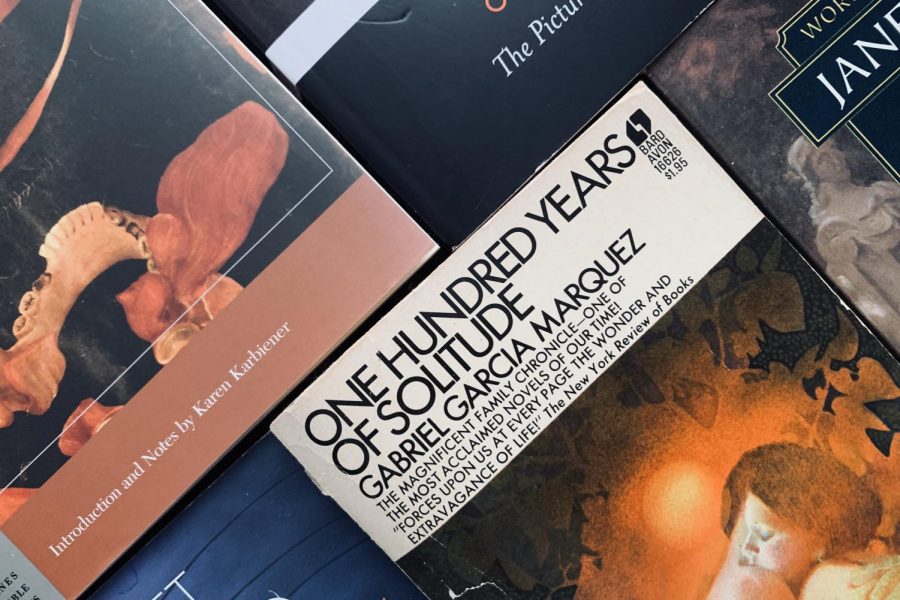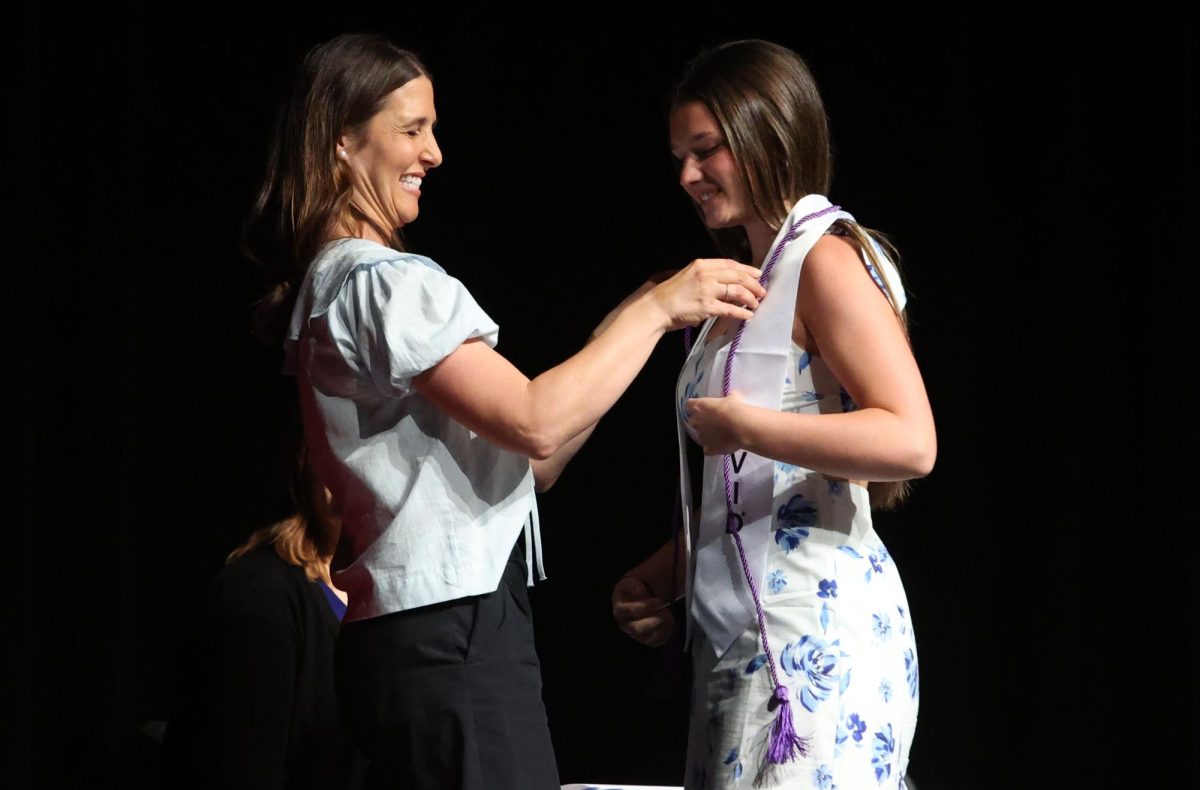Classics reading list
5 classic novels to help get into literature
May 18, 2021
1. “The Great Gatsby” by F. Scott Fitzgerald
This short, relatively recent novel is a great starting point for readers wanting to get into classic literature. Following a small cast of characters in an intriguing story of 1920s glamor, “The Great Gatsby” is only 218 pages long. Since it was written in 1925, the language, while slightly archaic at times, is easy for modern readers to understand and help readers feel comfortable with classic literature.
First sentence: “In my younger and more vulnerable years my father gave me some advice that I’ve been turning over in my mind ever since.”
2. “Pride and Prejudice” by Jane Austen
While this beloved Austen novel is both long and the language difficult to understand at times, the story and characters make it another great starting point. The story follows Elizabeth Bennet, one of five sisters who must marry well to ensure the well-being of their family due to the conditions of their father’s inheritance. The Bennet sisters each have their own personalities, interests and pursuits that make the story delightful to read.
First sentence: “It is a truth universally acknowledged, that a single man in possession of a good fortune, must be in want of a wife.”
3. “The Picture of Dorian Gray” by Oscar Wilde
Oscar Wilde’s classic novel tells the story of Dorian Gray, a young, incredibly handsome and privileged man. After his portrait is painted by an artist named Basil Hallward, he exchanges his soul so that he will stay eternally young and beautiful while the picture fades and ages instead. Under the influence of Lord Henry, he descends into an immoral, indulgent life, staying beautiful and outwardly perfect while the portrait records every sin. Along with the captivating premise, Wilde’s only novel masterfully uses language through both description and dialogue to add depth to the story.
First sentence: “The studio was filled with the rich odour of roses, and when the light summer wind stirred amidst the trees of the garden, there came through the open door the heavy scent of the lilac, or the more delicate perfume of the pink-flowering thorn.”
4. “One Hundred Years of Solitude” by Gabriel Garcia Marquez
For readers wanting to dive straight into challenging but rewarding classic novels, Marquez’s multigenerational tale of the Buendía family living in the fictional town of Macondo is a perfect book to pick up. A classic of Colombian literature, this novel is an excellent example of magical realism, a staple in Latin American writing. While the story can be quite difficult to follow at times, retaining easy access to the family tree often included in the beginning of the book can help.
First sentence: “Many years later, as he faced the firing squad, Colonel Aureliano Buendía was to remember that distant afternoon when his father took him to discover ice.”
5. “Frankenstein” by Mary Shelley
The novel through which Shelley invented the science fiction genre at 18, “Frankenstein” follows Victor Frankenstein, a young scientist who creates a living creature in a science experiment. Often contemplating the human condition, “Frankenstein” is a thoughtful novel that has inspired others since its publication.
First sentence: “You will rejoice to hear that no disaster has accompanied the commencement of an enterprise which you have regarded with such evil forebodings.”








